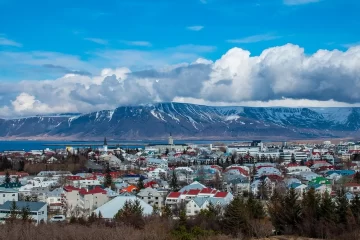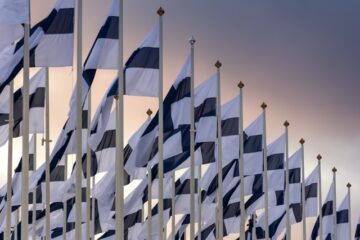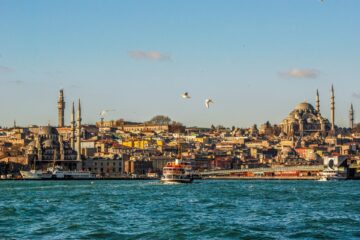On 7 July, riots broke out on the streets Belgrade following the Serbian government’s announcement of strict lockdown measures in the country. While the prospect of re-entering lockdown is certainly a frustrating development for Serbians, their response is a reaction to a culmination of anti-democratic behaviour from President Aleksander Vučić and his ruling Serbian Progressive Party (SNS).
Following the breakup of the former Yugoslavia and the wars that ravaged the Western Balkans in the 1990s, Serbia has made progress in developing its political system toward a more democratic model. Throughout the 2000s, key figures in Serbian politics largely shifted away from the ultranationalist tendencies that had previously defined the country’s leaders. At face value, it seemed as though Serbia shifted its focus to economic growth, improving standards of living and setting Serbia on the path to European integration. This progress was recognised by the European Union (EU) which, in 2013, approved Serbia’s application of candidate status for EU membership. Initial hopes were for Serbia to complete its accession negotiations in 2024 and officially join the EU in 2026.
Indeed, in recent times the EU has made clear its desire to have candidate countries fully meet the Copenhagen Criteria prior to accession. The Copenhagen Criteria sets out the EU’s accession conditions and refers to the necessity for aspiring EU member states to have institutions to preserve democratic governance and human rights, a functioning market economy, and respect for and protection of minorities. The EU has taken the firmer stance on accession negotiations, particularly in the Balkans, so as to avoid cases similar to Bulgaria and Romania who have failed to progress in the democratisation process following their accession to the EU. With this in mind, it is unlikely that Serbia will join the EU in 2026 given developments in recent years under the SNS which have seen Serbia recede rather than progress in many areas. Serbia has failed to strengthen the rule of law, democratise and adequately address systemic corruption, not to mention the lack of progress on the Serbia-Kosovo situation which remains a sticking point for Serbia’s EU accession negotiations.
President Aleksandar Vučić assumed the presidential office in 2017 following a decorated career in the National Assembly, serving two terms as Prime Minister. Prior to the SNS, Vučić was a member of the ultranationalist Serbian Radical Party led by convicted war criminal, Vojislav Šešelj. Vučić joined the SNS from its inception in 2008 and has led the party since 2012. Under his direction, Vučić has developed the SNS into the undisputed heavyweight of Serbian politics. The SNS espouse a rather oxymoronic range of political and ideological positions including, but not limited to, pro-Europeanism populist conservatism, Russophilia, and more recently Sinophilia. Put simply, the SNS is a ‘pro-power’ party that adopts whatever political stance helps tighten its grip on power.
The regression of democratic processes in Serbia received widespread attention in May 2020 when watchdog organisation Freedom House removed Serbia from its list of democracies. Freedom House now classifies Serbia as a “hybrid regime” given its democratic reversion, state-controlled media and the declining rule of law. Prominent members of the European Parliament have also expressed their concern at Serbia’s increasingly decadent political environment.
As it has all countries, the outbreak of the COVID-19 pandemic put the Serbian government in an unprecedented predicament. Serbia moved relatively quickly to close its borders and impose strict curfews on its citizens in an attempt to contain the spread of the virus. Returning citizens underwent mandatory quarantine for up to 28 days, with three-year prison sentences awaiting those who violated the regulation. After seemingly ‘flattening the curve’, restrictions were eased almost entirely in the leadup to the elections for Serbia’s legislative arm, the National Assembly. Following the election and the SNS’s securing of an absolute majority in the parliament, the government reported a spike in COVID-19 cases and announced it would reimpose restrictions on residents in Belgrade and potentially the rest of Serbia.
Serbia’s elections in June 2020 saw the SNS secure an absolute majority in the National Assembly, winning 188 of a possible 250 seats. The Socialist Party of Serbia-United Serbia (SPS-JS), who have been in coalition with the SNS since 2012, won 32 seats. The other result worth noting was the 11 seats secured by new right-wing political party, the Serbian Patriotic Alliance (SPAS). On paper, SPAS is in opposition but has been ambiguous in its stance toward the potential for forming government with the SNS. Ethnic minority parties make up the rest of the National Assembly. The opposition parties boycotted the election in protest at the undemocratic nature of Serbia’s electoral process.
Sources on the ground in Serbia (wishing to remain anonymous) say that the SNS deployed a wide-range of methods to rig the elections and achieve such a landslide victory. Notably, those who work in government or state-controlled industries alike and refused to vote for or become members of the SNS were fired from their positions. At the election booths, all voters were required to take a photo of their ballot paper with their ID and send it to the SNS controlled electoral commission and those who did not vote for the SNS lost their jobs in government or those industries under government control or influence. Similarly, those with aspirations to work in these areas could be denied the opportunity of future employment based on their vote. The SNS sent representatives to stand outside polling booths and give voters pre-filled voting ballots. There are reports of the SNS sending its officials to polling booths who were checking that voters were choosing the SNS and then forcing electoral supervisors to sign off in their reports saying that electoral process proceeded as normal. Ballot boxes in some locations were reported as stolen. Large numbers of people were chauffeured between polling booths to vote multiple times either under aliases or the names of deceased persons. Some businesses have been reported to have had their licences or trading permits revoked for being openly in opposition to the SNS.
The rules regarding voting thresholds were changed in the leadup to the elections. The threshold for a given party to secure seats in the National Assembly was lowered from 5% to 3% to encourage smaller parties to run in the election following the opposition’s decision to boycott the election. Sources on the ground in Serbia allege that the SNS propped up minor parties who had little chance of securing the 3% threshold and in return, the SNS would secure those minor parties’ preferences and their votes would flow to Vučić’s party. In return for their cooperation, sources in Serbia suggest the SNS has allegedly ensured the members of those minor parties will attain some sort of special treatment such as a senior position in a public enterprise.
On 7 July 2020, protests broke out on the streets of Belgrade in the wake of President Vučić’s announcement he would reimpose lockdown measures and strict curfews. The protesters’ anger is driven by the government’s backflip on the loosening of restrictions. They feel as though Vučić’s administration concealed the real numbers of COVID-19 cases so that it would be appropriate to hold elections in June 2020. Protestors are concerned that such a large majority in the National Assembly now gives the SNS the power to make constitutional amendments. The protests have, at times, turned violent and the government’s response has been heavy handed. Serbia’s Minister of Interior has deployed the elite anti-terror police units to quell the unrest. Footage has emerged of the severe cases of police brutality, although President Vučić has denied any brutality and insisted that his government is trying to prevent a foreign led coup d’état. Furthermore, Vučić has said that the politically-charged riots have been orchestrated by foreign powers trying to undermine the Serbian government, especially in the leadup to the next Pristina-Belgrade dialogue on the Kosovo situation. There is no evidence of such a claim; on the contrary, some reports claim that the government hired football hooligans to provoke the anti-riot police squads, thereby legitimising the government’s heavy-handed response.
Vučić’s administration has ordered Serbia’s elite military units to quell the unrest. Some reports indicate the government sent a unit of anti-riot police from Niš, Serbia’s third-largest city, to Belgrade after Belgrade’s unit refused to take violent measures against the people: they feel the orders contradict the oath they swore to protect Serbia’s people and not to serve as a tool to impose anyone’s political will. One member of the military was outspoken reminding the government of the legalities surrounding the military’s competence. This prescribes the military cannot legally intervene unless protecting the state against a foreign force. Serbia’s minister of defence has denounced this contention this as untrue stating that the military was deployed legally.
The same sources suggest that if the violent protests continue like this, the military might turn against Vučić and attempt to bring the government down. However, the violent streak has subsided since 9 July and altercations with police as well as the numbers of protestors have declined. The waning strength of the protests is in part due to the division among demonstrators on how best to conduct the protests as well as Vučić backing down on the reimposition of curfews. Vučić said openly last year that even if protestors came out in their millions he would not give in to their demands. As such, the protestors are internally divided as some feel as though violence is the only language the President will understand whereas others would rather peaceful demonstrations. The same members of the opposition who boycotted the election apparently tried to involve themselves and coordinate the demonstrations but the protesters wanted no involvement from politicians. Indeed, Serbia has not experienced demonstrations of this magnitude since the Milošević era.
The EU, which has struggled in recent years in its diplomatic efforts with Serbia, has been relatively silent on the issue. Former president of the European Council Donald Tusk, a heavyweight of European politics, came out in strong support of Vučić prior to the Serbian elections. The relative silence and seemingly inconsistent stances of esteemed European political figures is of major concern to young Serbians with a pro-European vision who look to the EU for leadership. Young and ambitious Serbians with hopes for their country to join the EU are faced with the dilemma of getting involved in the demonstrations but risking their future career prospects should they be identified by the government. 46% of people in Serbia believe that their country will never join the EU. Certainly, the current situation in Serbia and the government’s recent direction is concerning for its people and bodes poorly for the country’s EU membership aspirations.


